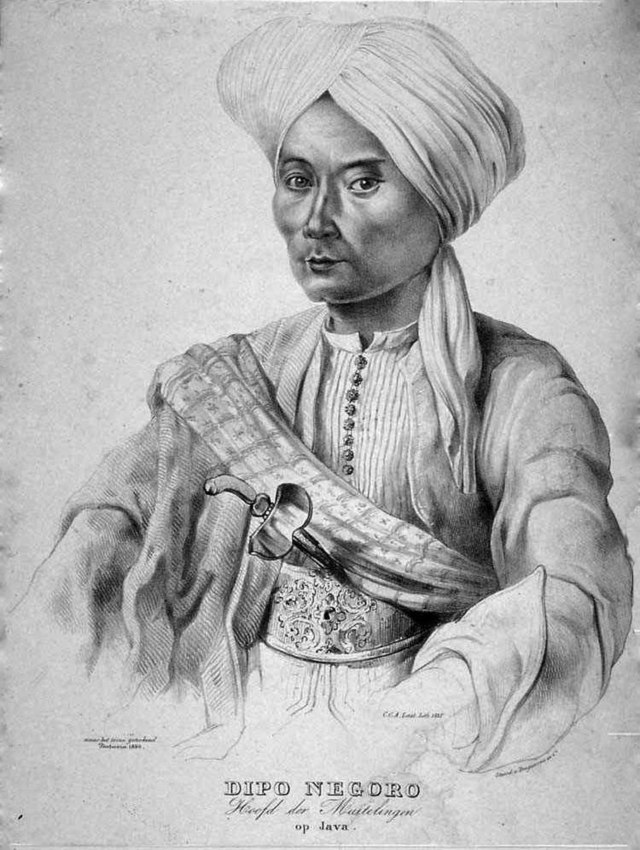Pangeran Diponegoro, born as Raden Mas Said or Raden Mas Hario Suroso, was a prominent Javanese prince and national hero of Indonesia. He was born on November 11, 1785, in Yogyakarta, Java, which was then part of the Mataram Sultanate.
Diponegoro hailed from the royal family of Yogyakarta, and he was the eldest son of Sultan Hamengkubuwono III. Growing up in a royal household, he received an excellent education and was trained in various disciplines, including martial arts, literature, and Islamic studies.
In the early 19th century, Java was under Dutch colonial rule, and Diponegoro witnessed the growing influence of the Dutch East India Company (VOC) and the imposition of unfair policies on the local Javanese population. As a member of the Javanese aristocracy, Diponegoro became increasingly concerned about the loss of Javanese sovereignty, the erosion of traditional values, and the exploitation of his people.
Diponegoro's leadership qualities and his strong sense of justice propelled him to become a symbol of resistance against Dutch colonialism. He was also deeply influenced by his spiritual beliefs and saw himself as a defender of Islam in Java. In 1825, he led a rebellion known as the Java War or the Diponegoro War against the Dutch colonial forces.
The Java War was a protracted conflict that lasted for five years and saw Diponegoro's forces employing guerilla warfare tactics against the technologically superior Dutch troops. His followers, who were primarily drawn from the peasantry and Islamic religious leaders, passionately rallied around him. Diponegoro's charisma, strategic acumen, and ability to inspire his troops earned him great respect and admiration.
Despite his military successes, Diponegoro was ultimately betrayed by a fellow Javanese nobleman who collaborated with the Dutch. He was captured by the Dutch in 1830 and exiled to Manado, Sulawesi. He lived there in exile until his death on January 8, 1855, at the age of 69.
Pangeran Diponegoro's rebellion had a profound impact on the national consciousness of Indonesia and became a symbol of resistance against colonial oppression. His struggle for independence and justice continues to be celebrated in Indonesia as a symbol of national heroism. Today, he is revered as one of the key figures in the fight for Indonesian independence and is regarded as a symbol of national pride and resilience. Numerous monuments, statues, and cultural references honor his memory throughout the country.




